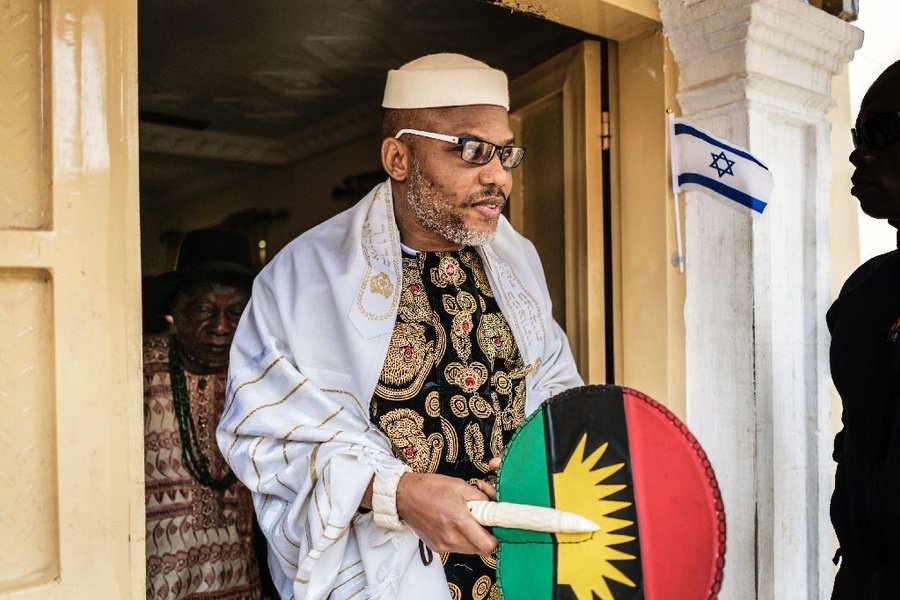UK High Court frowns at Nnamdi Kanu’s extradition to Nigeria
In an important human rights case involving Nnamdi Kanu, a British national and the leader of the Indigenous People of Biafra (IPOB), the British High Court issued an unusual decision.
Kanu had petitioned the High Court to complain to the British government for failing to defend him against the Nigerian government despite being a British citizen.
In June 2021, Kanu’s legal team, led by John Halford, Head of Public Law and Human Rights in Blindsman LLP, claimed that Kanu had been abducted from the Nairobi, Kenya, airport by Nigerian security agencies and held and tortured for a period of about ten days.
Afterwards, while wearing blindfolds, Kanu was taken to Nigeria on a private jet.
Despite the High Court’s decision to reject his extradition to Nigeria, Aloy Ejimakor, Special Counsel to Kanu and IPOB, said in a statement released on Thursday that the Foreign Secretary was not need to step in.
Ejimakor’s statement read in part, “Mr Kanu’s case was heard over four months ago on 15 November 2022. In today’s judgment, Mr Justice Swift noted the evidence of serious wrongs having been committed against Mr Kanu, including that in 2017, the Nigerian state had attempted to kill Mr Kanu (for which a Nigerian High Court awarded compensation and an order for apology), that the Nigerian authorities captured Kanu in 2021 whilst he was in Kenya and subjected him to inhuman and degrading treatment, and crucially that he was subject to “rendition”.
“The Court’s judgment is unsatisfactory not just for Mr Kanu but for any British national who finds themselves subject to a serious violation of their rights whilst abroad. It effectively enables the Foreign Secretary to prevaricate indefinitely in the face of such a violation and consequently limits the steps the British authorities should take to assist a British national, even in circumstances where there is unequivocal evidence of that violation.
“Ms Shirin Marker said today, that: ‘Despite taking four months to decide this case, the High Court has produced a judgment that is extremely difficult to reconcile with long-standing legal precedent and the principle underpinning it, which is that British Citizens abused abroad are entitled to expect decisiveness and protection from the British Government, rather than years of hand-wringing procrastination.’”
Kanu is currently in the Directorate of the State Service’s (DSS) custody in Abuja.
The IPOB leader was granted release by Justice Binta Nyako of the Abuja Federal High Court in 2017.
When he was released later that year, Kanu fled Nigeria for Europe, where he continued to advocate for the creation of Biafra.
After the Nigerian Army’s Operation Python Dance forces attacked the commander of IPOB’s home in Afaraukwu, Abia State, in an effort to arrest him, the IPOB leader fled the country.
The IPOB leader was apprehended once more in Kenya five years after eloping to Europe.
Kanu was returned to Nigeria through an extraordinary rendition, and it was claimed that the procedures for his rearrest were not followed.
Kanu’s trial was forced to proceed when he got back to Nigeria.













